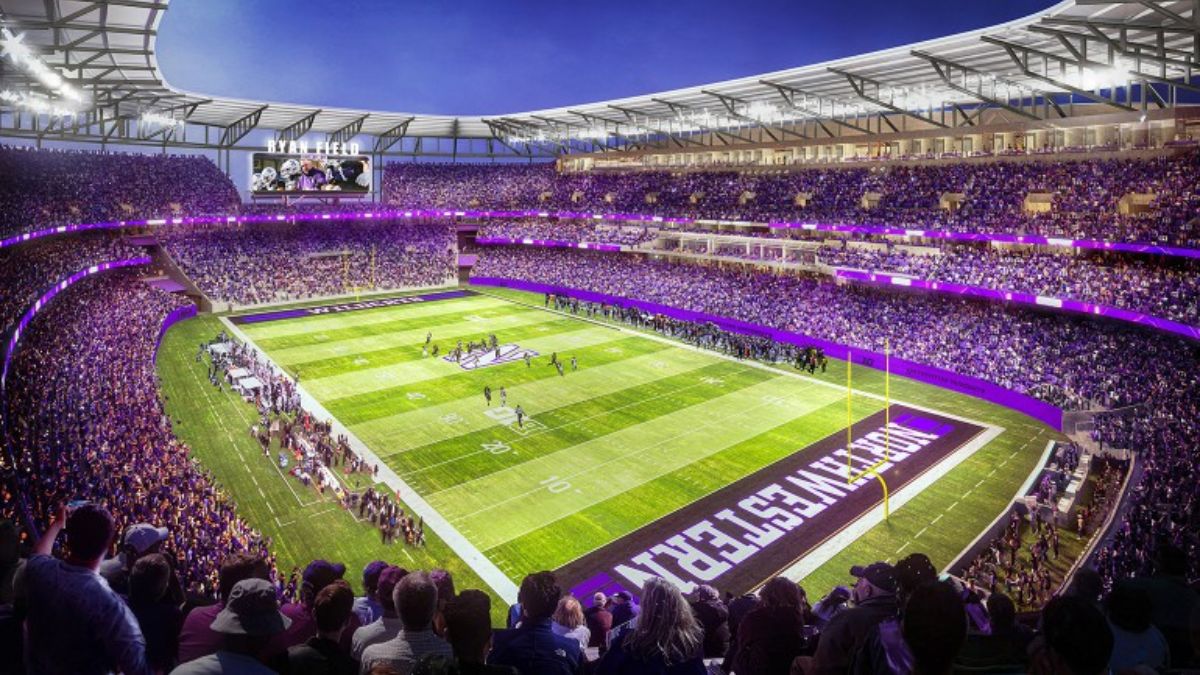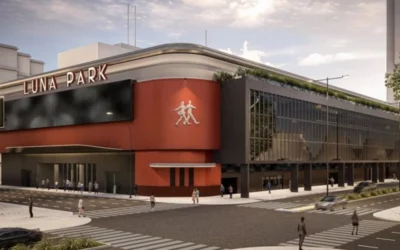Northwestern University’s Ryan Field will receive an $800 revitalization, allowing the historic stadium to host up to six concerts per year.
The Evanston City Council approved an amendment to the zoning code and the building permit to rebuild Ryan Field, which Northwestern’s senior executive director of Neighborhood and Community Relations Dave Davis called a “pivotal moment for Northwestern and the city of Evanston.”
“We’re embarking on a journey that promises not just a state-of-the-art stadium, but also a beacon of cultural and economic vitality,” Davis said. “This project is a testament to our shared vision of progress and prosperity.”
The university intended to rebuild the field in order to host concerts and serve alcohol — something the public wasn’t too keen about, as the concerts would be in close proximity to nearby residential homes. The opponents are expected to sue the city over the zoning decision, the Chicago Sun Times reports.
“While we are elated with the Council’s decision, we remain deeply committed to being sensitive and responsive to the concerns raised throughout this process,” Davis said. “We recognize the emotional depth of this issue and extend our sincere gratitude to everyone who shared their perspectives.”
In addition to the zoning approval, the university agreed to committing $157.5 million in donations to local schools and organizations over 15 years.
Construction on the 97-year-old stadium is expected to begin immediately, with a planned opening of 2026. In the meantime, there has been no word of where the Wildcats will play until construction is complete. The new stadium will have a capacity of 35,000 fans for football games and 28,500 for concerts.
Ryan Field, which currently has a capacity of 47,130, has a long history in Illinois. First named Dyche Stadium, the venue hosted the Chicago Bears in 1970, as well as the 1932 Women’s and 1948 Men’s US Olympic Trials for track and field. It also held the 1943 NCAA track and field championships and the College All-Star Game in 1943 and 1944.
Northwestern University said the stadium is expected to be a catalyst for local economic growth and bring in new jobs while boosting local businesses. It also aims to become a “vibrant cultural hub” in the city.




